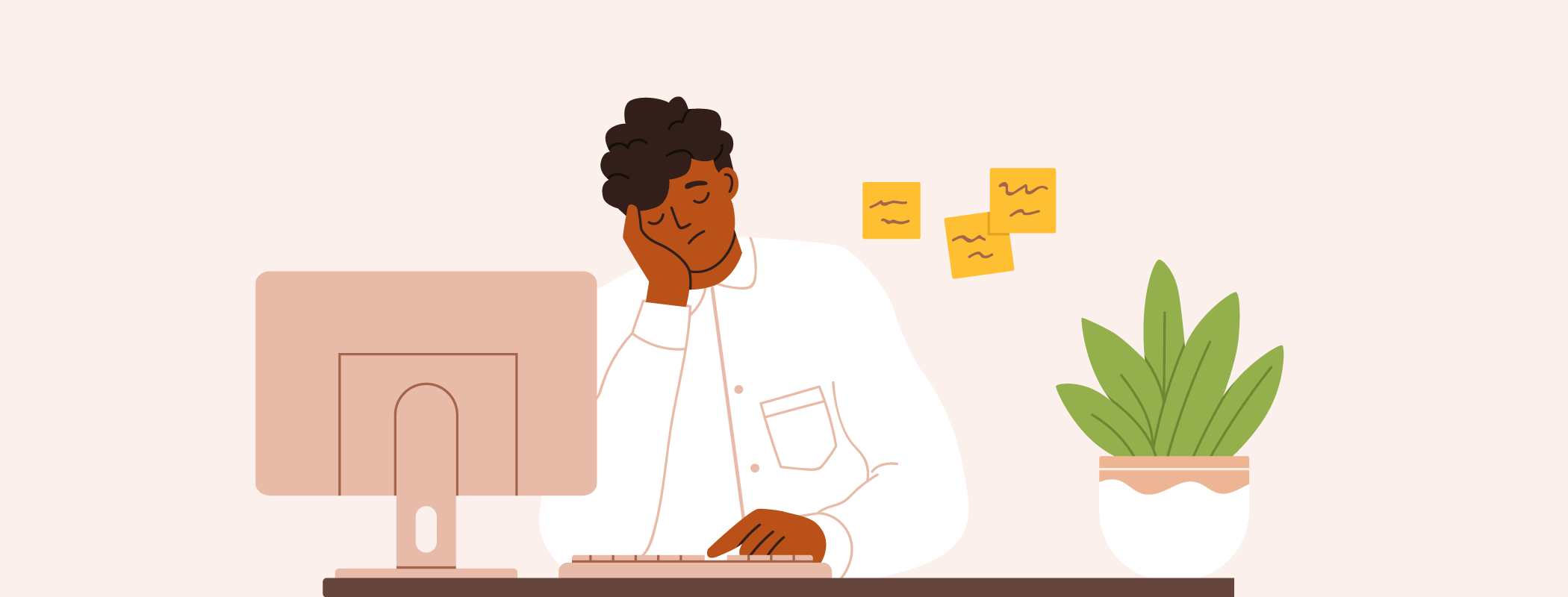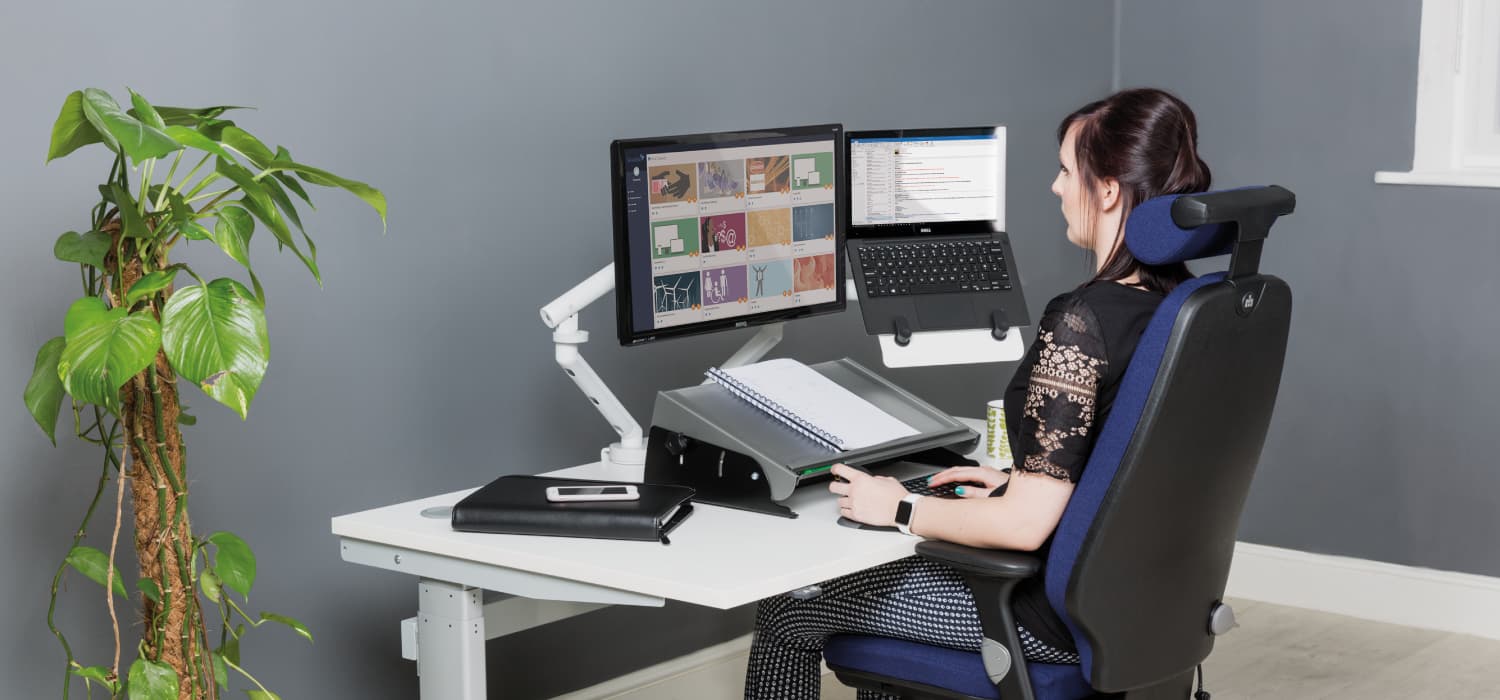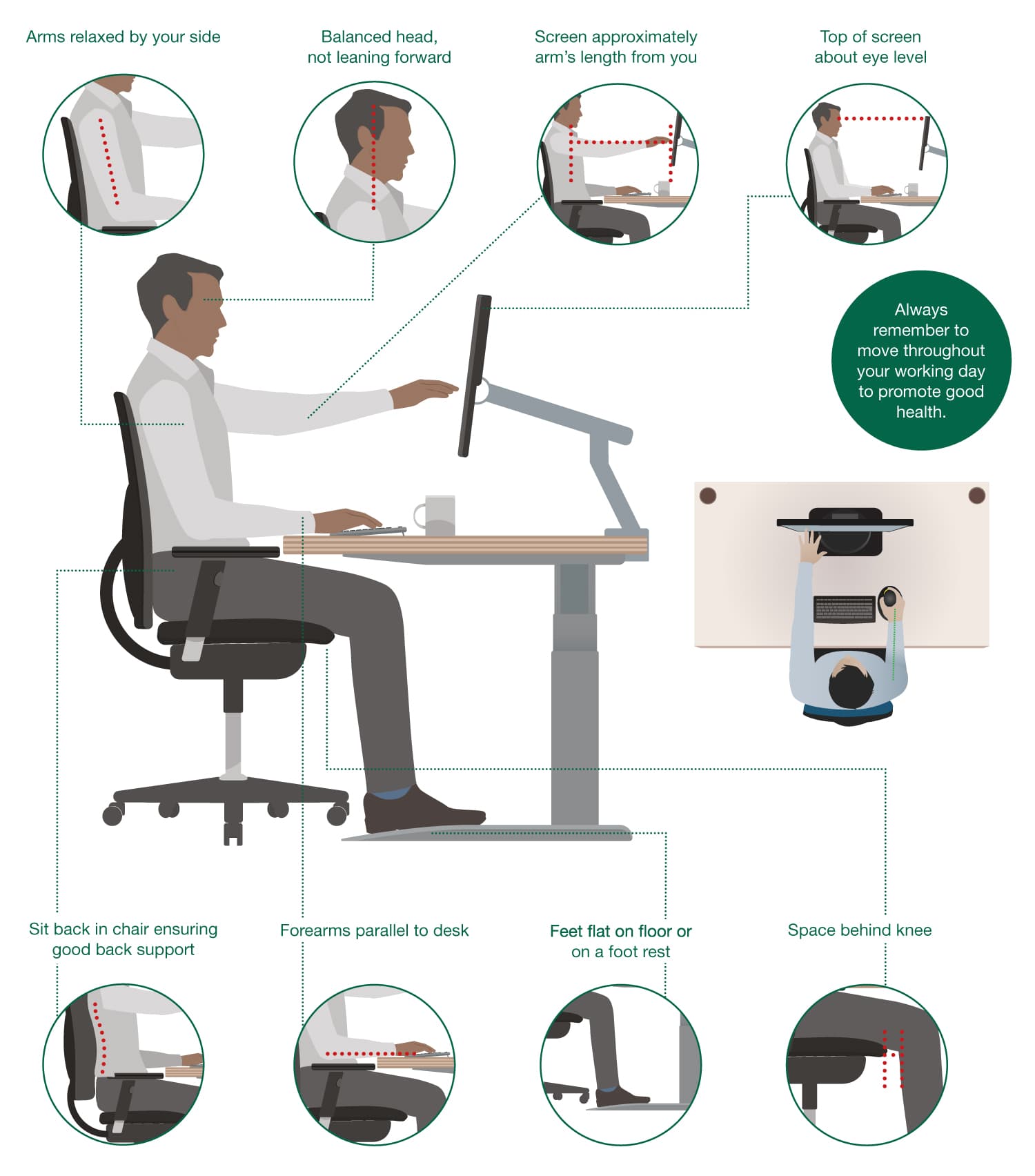Working from home fatigue guide

Do you ever feel stuck in an ‘endless day’ while working from home? You may be suffering from work from home fatigue. A lack of human contact, no healthy routine and a lack of boundaries between work and life can cause your motivation and energy levels to dive bomb. Use this guide to escape work from home fatigue and develop a working from home routine that keeps you feeling alive and full of productivity.
Do you have work from home fatigue?
Signs and symptoms of work from home fatigue include:
- Feeling tired all the time
- Finding it hard to focus
- Lack of motivation
- Work performance dropping
- Desire for change
What causes work from home fatigue?

If you’ve been used to working in an office, making the switch to homeworking can be exciting. Working from home has many perks compared to life in the office, such as greater flexibility, avoiding commuter stress and enjoying a better work-life balance — however, for some people the novelty can quickly wear off and lead to work from home fatigue. There are several possible reasons for this, including:
Being an extravert
Extraverts get most of their energy from external sources — mainly by spending time with other people. When left to their own devices, extraverts can quickly start to feel flat and despondent.
'Always on' culture
Without the physical distance between home and work, it can be hard to know when to switch off. People often feel pressured to pick up phone calls and emails out of the standard hours when they work from home.
Poor equipment and set-up
Even though you’re probably sitting down for most of the day, computer work requires small, repetitive movement that — without good ergonomic equipment, can contribute to muscle fatigue and resulting musculoskeletal issues.
Poor management
Managing a remote team is a specialist job. It is different to having your team with you physically. Unfortunately, many managers lack the skills and training to adequately manage homeworkers. Uncertainty can lead to micromanaging on one end of the scale, to a complete lack of support on the other.
Lack of movement throughout the day
It’s not always excessive physical activity that causes work from home fatigue. More typically, it’s physical inactivity. Regular exercise helps your heart get stronger. The stronger your heart is, the more blood it can pump with each beat. Computer work naturally requires us to be sedentary, and if you spend too much time sitting without moving and exercising regularly, your heart will become weaker. The weaker your heart, the less blood it can pump with each heartbeat, and the less oxygen you’ll have in your body. The body needs oxygen to turn nutrients into energy, so with lower oxygenation, comes lower energy — and a feeling of fatigue.
No healthy routine
Office life gives us routine and rules. At home there’s more flexibility. While some thrive with flexibility, others need structure and routine to give them momentum.
Cabin fever
We tend to be very sensitive to our environments. Going to an office provides change and stimulation; it exposes you to new people and situations. Opportunities arise; inspiration strikes. Work from home fatigue can be caused by cabin fever: itching for a new environment.
How can you get rid of work from home fatigue?
If you are experiencing a drop in your physical and mental wellbeing, make sure you seek advice from your GP. Otherwise, you can try the following top tips for overcoming burnout and work from home fatigue.
1. Talk to your manager

If you’re fully employed, talk to your manager or HR department. Perhaps you simply aren’t well-suited to homeworking and would rather work from the office (if this is an option), or adopt a hybrid working approach, where you spend some time working from home, and some at the office. You should also receive support to improve your wellbeing, such as signposting to useful services, training, and any other incentives offered by your organisation.
2. Find a shared office space

Perhaps you’re self-employed or work for a fully remote company and don’t have the option of going to an office. Nomadic working is rising in popularity and a positive offshoot of this is that there are now more cafes and rentable workspaces available for remote workers. Going somewhere different to work for the day — or even for a few hours, gives you a reason to get up, get dressed and leave the house. You’re also more likely to find social stimulation.
3. Improve your posture with suitably positioned ergonomic equipment

Poor posture and positioning at your workstation could easily be contributing to your work from home fatigue.
Poor posture causes fatigue by:
- Putting extra demand on your body, causing poor alignment and requiring your muscles to work harder, which can tire them out more quickly.
- Reducing lung capacity, lowering your oxygen levels.
- Causing you to sit too close to your screen, resulting in eye strain and fatigue.
Are you hunching? Slumping? Spending too long looking down at a laptop screen? The most obvious sign that you need to improve your workstation is if you experience any kind of discomfort after spending some time working. Make sure you have appropriately set up home office chairs and desks.
To achieve a healthy set-up, check yourself against our graphic:

Here are some ergonomic products that can help you achieve a better posture:
4. Get plenty of exercise and movement

When you’re tired, the last thing you probably want to do is move more — but studies show that exercise can actually help reduce fatigue.
In fact, a University of Georgia study found that sedentary people can raise their energy levels by 20% and reduce fatigue by 65% by doing regular, low intensity exercise.
Low intensity exercise could include:
- Yin yoga
- Walking
- Slow cycling along a flat trail
- Gentle swimming
5. Establish a healthy working routine

It can be hard to have self-discipline when you’re working alone in the same place every day. Even with the best of intentions, standards can slip over time.
Here are some tips for initiating a healthy working routine:
- Set an alarm at the same time every morning
- Start the day with some form of movement
- Wash and get dressed
- Get up from sitting at least every 30 minutes
- When you’ve completed your hours, switch everything off
- If possible put work equipment away, out of sight
- Go for a walk or arrange an activity to mark the end of your working day
6. Eat fatigue-boosting foods

The healthiest way to keep your energy levels up is to have a healthy, balanced diet.
The NHS recommends the 'energy diet', which involves:
- Eating at regular intervals.
- Not skipping breakfast.
- Aiming for 5 fresh vegetables/fruit a day.
- Including starchy carbohydrates (good source of energy), such as pasta, rice, bread, potatoes and cereals.
- Eating iron-rich foods (to reduce anaemia), such as dark green vegetables, beans, dried apricots and nuts.
- Cut down on sugar — the rush of energy wears off quickly, it’s bad for your teeth and can cause weight gain.
- Drink 6-8 glasses of water a day.
Work from home fatigue can be beaten with the right support, set-up and habits. Not everyone is suited to this way of working, so it’s worth asking yourself if your job is truly right for you. Always seek advice from your GP to rule out any health issues, and keep in mind the importance of regular movement.
What next?
Now that you know what causes work from home fatigue and how to fight it, you might be interested in reading more of our guides, which have all been created to help you stay healthy, happy and productive while working from home.





